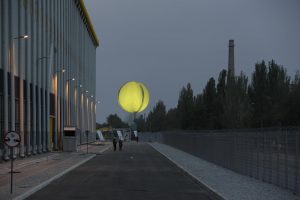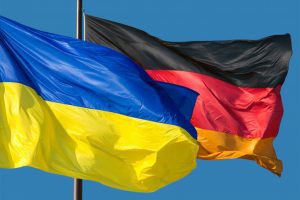
Metinvest, an international vertically integrated group of mining and metallurgical companies, has conducted a comprehensive assessment of its environmental performance, social policy and corporate governance (ESG) with the assistance of Sustainalytics, a leading independent provider of research, ratings and data in the field of ESG.
“This is the first time that Sustainalytics has assessed Metinvest’s ESG performance using its ESG Risk Ratings methodology. An ESG Risk Ratings score is a measure of unmanaged ESG risks on an absolute scale of 0-100, with a lower score signaling less unmanaged ESG risks,” the group said on its website.
“Metinvest received an overall ESG Risk Rating score of 32.0. While the risk of experiencing material financial impacts driven by ESG factors was assessed as high due to the steel industry’s significant exposure, Sustainalytics recognized the Group’s management of material ESG issues as strong,” the report says.
“Notably, Metinvest’s management in such areas as human capital, occupational health and safety, as well as community relations was assessed as strong. In addition, Sustainalytics assigned a high score for the group’s corporate governance and its adherence to high standards of business ethics,” it says.
“When compared with industry peers, Metinvest is ranked at ninth place out of the 140 steel companies assessed by Sustainalytics worldwide,” according to the document.
“We recognize that mining and steel manufacturing always have a high level of exposure relative to many other industries. Metinvest consistently takes into account environmental, social and governance factors in its business decisions, therefore we have launched our first external assessment in the ESG field as part of our overall commitment to business transparency. We believe that measuring our ESG performance helps us to better understand our strengths and weaknesses for further sustainable development. We have received vital feedback and analyzed how we can build more robust risk management institutions to ensure the group’s continued industry leadership,” Yuriy Ryzhenkov, the Chief Executive Officer of Metinvest, said.
“ESG topics are gaining importance worldwide for all groups of stakeholders, including lenders. We believe that this rating assigned to the group by Sustainalytics will help to alleviate the decision-making process in funds allocation for our existing and future investors and creditors,” Oleksandr Liubarev, the Corporate Finance and Treasury Director at Metinvest, said.

Interpipe international vertically integrated pipe and wheel company in January-March of this year increased payment of taxes and fees to the budgets of all levels and extra-budgetary funds by 3% compared to the same period last year, to UAH 803 million.
The company said on Facebook the amount of contributions to the state budget totaled UAH 547 million, to local budgets some UAH 147 million, another UAH 109 million was transferred as social security tax.
“The Ukrainian industrial company Interpipe and its assets make a significant contribution to filling the state treasury. Last year we updated the record for paying taxes and fees, but we do not stop there: according to the results of the first quarter of 2020 some UAH 803 million were transferred to the budgets of different levels. In addition, given the increased burden on regional budgets due to coronavirus, Interpipe refused tax holidays provided by the Verkhovna Rada and allocated UAH 17 million for the anti-crisis program to combat COVID-19 in Dnipro and Dnipropetrovsk region,” the company said.
As reported, Interpipe in 2019 increased payment of taxes and fees to the budgets of all levels by 50% compared to 2018, to UAH 3.25 billion. At the same time, the amount of contributions to the state budget totaled about UAH 2.167 billion (an increase of 62%), to local budgets about UAH 625 million (38% more). Another UAH 462 million (21% more) was transferred as social security tax.

The operation of the Solotvyno-Sighetu Marmatiei checkpoint on the Ukrainian-Romanian border was resumed from 18:00 on Wednesday, June 17, the State Border Service of Ukraine said.
“According to the Romanian Border Police, admission to the territory of Romania will be provided for citizens who are officially employed in Romania and have supporting documents (without passing a mandatory observation) and persons in transit (within 48 hours),” the service said in a statement.
The remaining categories of people arrived in Romania have to pass a procedure of observation.
“We emphasize that foreigners are allowed to enter Ukraine with the obligatory presence of medical insurance, which provides for COVID-19 treatment and observation. For people arriving in Ukraine from countries with a significant [coronavirus] COVID-19 outbreak, observation or self-isolation with Diy Vdoma (Act at Home) application is provided,” the State Border Service said.

The fall in real gross domestic product of Ukraine (GDP) in the second quarter of this year will accelerate to 11.3% from 0.5% in the first quarter, the National Bank of Ukraine (NBU) predicts in an updated inflation report.
Analysts of J.P. Morgan forecast recession at 5.1% of GDP in Ukraine in 2020 with inflation of 3.7% with a small deficit of current account of the balance of payments at 0.2% of GDP, according to the review dated May 5.
The drop in gross domestic product (GDP) of Ukraine in Q1, 2020 amounted to 1.2%, the Economic Development, Trade and Agriculture Ministry of Ukraine has said. Earlier, it forecasted GDP contraction at 0.9%.
Capital Times investment company with offices in Ukraine and Belarus has worsened expectations for the dynamics of both real and nominal GDP of Ukraine in 2020, in particular, according to its estimates, the country’s real GDP will fall by 7%.
Ukraine’s gross domestic product (GDP) will decrease by 5.2% in 2020, with a further return to growth by 3.6% in 2021, analysts from Oxford Economics predict.
There are no grounds for changing the forecast for the decline in Ukraine’s real gross domestic product (GDP) in 2020 by 4.8%, there are discrepancies with the National Bank of Ukraine (NBU) regarding the forecast for the hryvnia exchange rate and inflation, Minister of Economic Development, Trade and Agriculture Ihor Petrashko has said.
Ukraine’s GDP decline increased from 4.5% in March to 12% in April, and the GDP fall in Q2 2020 could be 10%, according to a study of the ICU Group.
Ukraine’s real gross domestic product (GDP) will decrease by 7.2% in 2020, of which the effect of quarantine will be about 3.0 percentage points (p.p.), and next year GDP growth will reach 4.3%, such an updated macro forecast was issued by Dragon Capital investment company.
BofA Global Research analysts again worsened the forecast for the pace of real GDP in Ukraine: in 2020, they now expect it to fall by 6.8% compared to 5.6% earlier, and in 2021 – by 6.5% instead of the previous estimate of 7.4%.
President of Ukraine Volodymyr Zelensky has expressed a gratitude to the parliamentarians for a decision meant to speed up consideration of law on settlement of the bank activities and will give an opportunity to continue cooperation with the IMF.
The Business Activity Outlook Index (BAOI) calculated by the National Bank of Ukraine (NBU) fell by 15.9 percentage points in April, to 29.9 points, which is lower than the neutral BAOI reading of about 50 and which signals about prevalence of pessimistic expectations of business.
The Finance Ministry of Ukraine on May repaid the second issue of the U.S. guaranteed loan participation notes. The total payment amount exceeded $1 billion, the ministry said on its website on Friday.
Ukraine’s real gross domestic product (GDP) will decrease by 7.2% in 2020, of which the effect of quarantine will be about 3.0 percentage points (p.p.), and next year GDP growth will reach 4.3%, such an updated macro forecast was issued by Dragon Capital investment company.
Ukraine’s economy was well-prepared for the current crisis thanks to important reforms that had been implemented in the country in recent years, EBRD Regional Lead Economist for Eastern Europe and Caucasus Dimitar Bogov, who is also a former governor of the central bank of Macedonia, has said.

The Cabinet of Ministers has approved a draft decree on signing of the joint statement between the governments of Ukraine and Germany concerning the beginning of the energy cooperation and commissioned acting Energy Minister Olha Buslavets to sign it.
The respective decision was taken without a discussion at the government’s meeting on Wednesday.
“I hope this will give an impetus to our cooperation in the fields of renewable energy and energy efficiency. The experience of Germany in the fair transformation of coal regions is also important for us,” Prime Minister Denys Shmyhal said at a government’s meeting.
According to the text of the draft decree, the sphere of cooperation between the governments of Ukraine and Germany, in particular, are the development of renewable energy and its integration into the energy network, the development of energy efficiency, the improvement of conditions for private investment in sustainable energy, the exchange of innovations in this field.
An explanatory note to the draft decree states that Ukraine’s energy sector reform is being carried out as a part of its development and implementation of the New Green Deal initiative of the European Commission and in accordance with the Green Energy Transition Concept until 2050.
The signing of the joint statement will create a platform for establishing bilateral cooperation on the development of sustainable energy and will help reduce the use of minerals, reads the document.

The Ecolines international bus service, which includes the Ukrainian Autolux service, will resume trips from Kyiv to Warsaw and Szczecin (Poland) starting from June 18.
As the company’s press service told Interfax-Ukraine, the company will gradually resume trips on other international routes.
Moreover, the company said that Autolux has already resumed regular bus service from Kyiv to Odesa, Zaporizhia, Kharkiv, Poltava, Kherson and Kropyvnytsky.
“There is a demand for routes in the western direction, but so far we cannot start trips to Lviv due to the epidemiological situation in the region,” the company said.